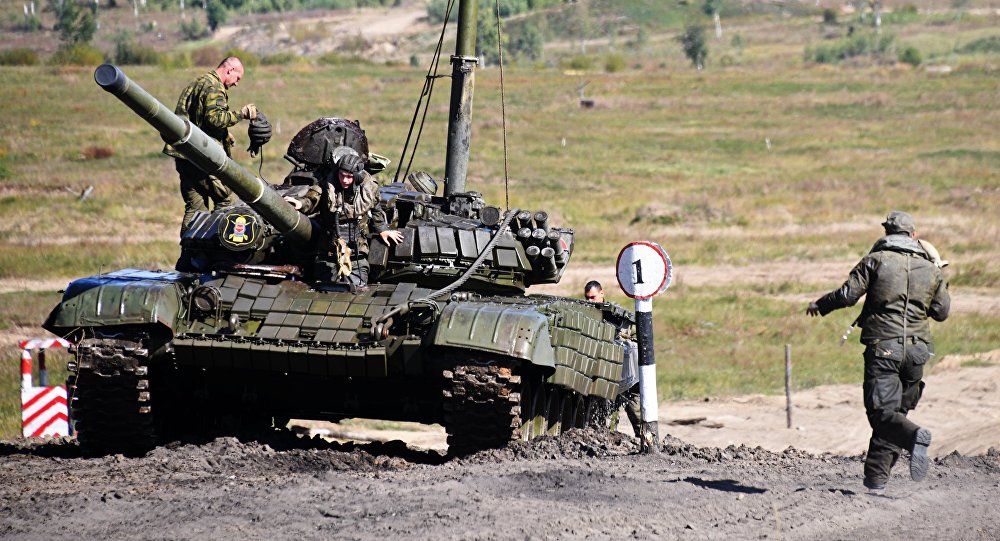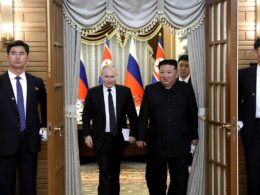Vladimir Putin’s visit to Beijing and Siberia has generated widespread attention to what Moscow may do to try to boost the economy and build up the population of Russia east of the Urals, something that comes at a time when Russian nervousness about China’s intentions with regard to Russian territory are again on the rise.
Among the developments in recent weeks fueling these fears are the following:
- New estimates of the number of Chinese citizens living in the Russian Far East that range up to 2.5 million, sparking concerns that Beijing might invoke Putin’s own Crimean strategy in order to absorb portions of the Russian Far East and Siberia at some point in the future.
- A dramatic influx of Chinese tourists on top of these permanent residents, most of whom have come to visit sites connected with the 1917 Bolshevik revolution but who often stay in Chinese-organized hotels and eat at Chinese restaurants, leading some Russians to think the Chinese view the region already as theirs de facto (asiarussia.ru and babr24.com).
- Growing anger among Siberians about the way in which Moscow officials and regional ones are selling off the natural resources of their country to China and pocketing the revenue rather than sharing it with the region’s population.
- Expanded land and air connections between the Russian Far East and China, connections that make it far cheaper for Russians to travel to China and Chinese to travel to the Russian Far East than for Russians in that region to travel to Moscow.
- And the appearance, according to unconfirmed but entirely plausible reports of road signs in Siberian and Far Eastern cities in the Chinese language, the kind of small thing that leads to often over-heated reactions.
Yaroslav Zolotaryov, a Siberian regionalist, provides a balanced assessment of the nature of Chinese activities on Russian territory and Beijing’s possible moves in the future in an article entitled “Does China Threaten Siberia?” His answer is a cautious one, not yet and not necessarily territorially but definitely culturally.
He points to three reasons for concern:
- Chinese memories of the unequal treaties Russia imposed on Beijing 150 years ago and Beijing’s desire, still implicit, to rectify the situation;
- The economic and demographic growth of China at a time of Russia’s economic and demographic decline; and
- The population and resource imbalance between China and the Russian Far East.
Those concerns have only intensified this year, he continues, because the number of Chinese immigrant workers in the Russian Far East has gone up by 400,000 since January 2017, while Russia’s Far Eastern Federal District has lost two million people in the same period as a result of higher death rates and outmigration.
Putin regime propaganda insists there is no threat, Zolotaryov says; but its arguments both are problematic and have the effect of calling attention to a threat Moscow does not want to talk about at all, thus provoking the very worries that the regime would like to still.
- According to Moscow, “the Chinese Peoples Republic is more interested in investments in Siberian enterprises than in populating the region.” But the Siberian regionalist argues that the one almost certainly will lead to the other over time.
- Second, Moscow insists that because the standard of living in China is higher than in Russia, the Chinese won’t be interested in moving to Russia. But in fact, they are moving there and are seeking to make their fortunes beyond China’s current borders. They are doing that now exporting twice as much wealth from Russia as they are bringing to it.
- And third, Moscow says, “the Chinese have other places to move to because a significant part of China is underpopulated. But the Chinese move to where there are resources, and there are far more of those in Siberia and the Russian Far East than in the parts of China where populations are small.
Zolotaryov concludes that “the Siberian people in the 21st century will be threatened not only by assimilation from imperial Russian-speaking culture, which in fact is already occurring, but also by assimilation from a China that is no less imperial” and thus of concern to the residents of the enormous region east of the Urals.
Some Russian commentators are much less measured in their reaction. One, writing on the Russian Orthodox nationalist site, Russkaya liniya, recalls that in the 1930s, Stalin expelled all the ethnic Chinese from the Russian Far East making that region — but not the USSR as a whole — “Chinese free.”
He expresses regret that there appears little chance for a repetition of what he sees as an act of national salvation.
Related:
- Beijing ready to pump water out of Russia’s Lake Baikal for China’s domestic needs
- ‘Chinese question’ looks far more threatening in Siberia than in Moscow
- Chinese to become second largest ethnicity in Russia, Moscow demographer says
- Moscow’s Crimean Anschluss taught China it can do the same in Asia, Russian analyst says
- Why invade when you can buy? China already owns 80% of Russian region








